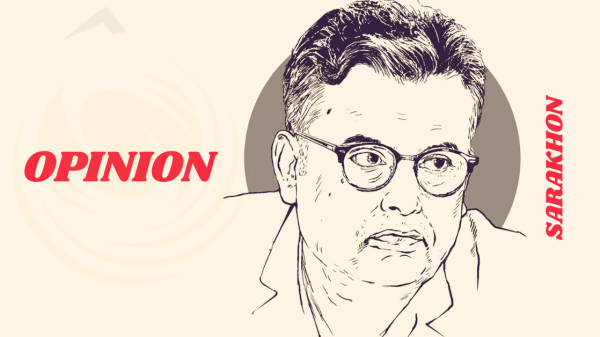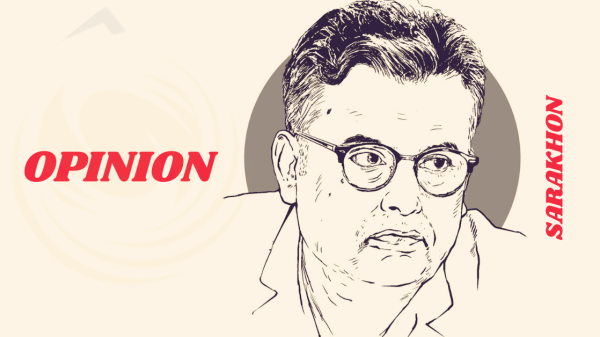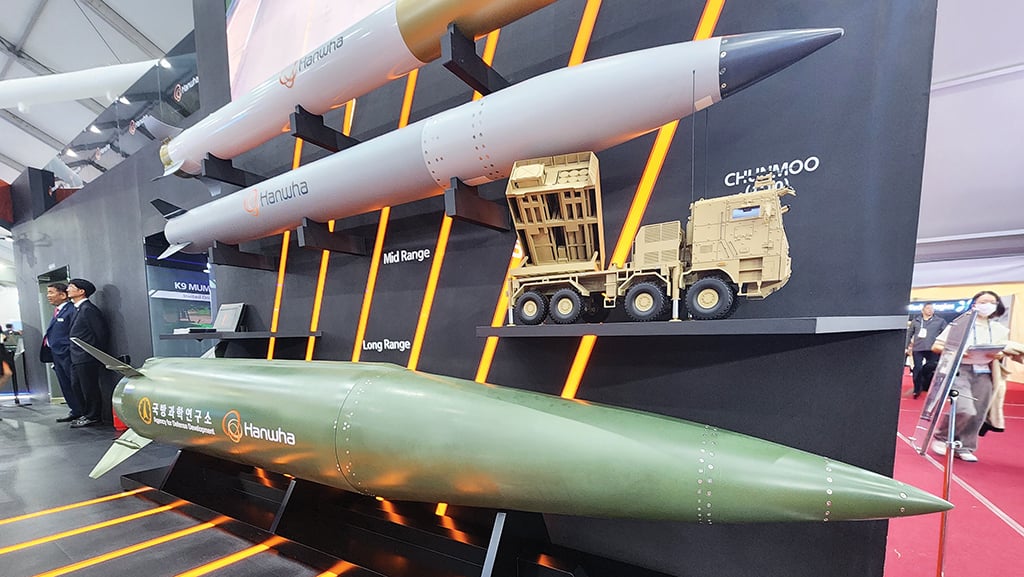Doubt Over Elections Now Clear Even to BNP—But When Will Stability Return?

Early Warnings from Inside BNP
After the Yunus-Tarique meeting in London, I had written that only time would reveal its true outcome. And slowly, time has begun to speak.
Senior BNP leader Mr Mirza Abbas has warned his party workers to remain alert, as he believes there’s a ploy underway to delay elections in the country. He fears this will not end well for the nation. On the other hand, a relatively younger BNP leader, Mr. Salauddin Ahmed, echoed poet Shamsur Rahman in a sharp poetic parody:
“To attain you, O reform… how much longer?”
Mr Salauddin, known for his brilliance as a student and an efficient bureaucrat during his academic and professional years, subtly laid bare the truth with a poetic stand.
Metaphor vs. Direct Speech: Two Leaders, One Message
I have known Mirza Abbas for over forty years. A grassroots politician, he doesn’t rely on metaphors like Salauddin. He issued a direct warning to his activists: the country is heading toward a grim outcome.
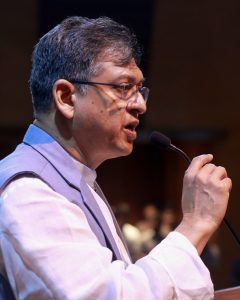
In fact, Salauddin’s version is even harsher in truth. The four lines he parodied are widely known. Still, for context, here they are:
“To attain you, O freedom,
How many more times must we float in rivers of blood?
How many more times must we witness another Khandava forest burn?”
Symbolism of Blood and Fire
Poet Shamsur Rahman ends this stanza by invoking the Mahabharata—asking how many more times we must see “Khandavadahan” (the burning of the Khandava forest). In the epic, the Khandava fire wasn’t just the destruction of a forest but of countless creatures and innocent people—symbolizing widespread suffering.
Salauddin deliberately chose these lines. He knows what the river of blood is and who suffers in Khandavadahan. It’s the common people.
So, while Mirza Abbas issued a straightforward warning, Salauddin Ahmed, using literary flair, underscored the painful delay in reform—and the cost the public might bear for it. In essence, both leaders say the same thing: the nation’s path is turning dangerous. And “nation” here refers to its people.
Draupadi, Yunus, and BNP’s Political Stripping
Since Salauddin has brought us to the Mahabharata, perhaps now—though it’s still early—it’s time to analyze the Yunus-Tarique meeting through that lens.
Some may view that meeting as akin to Draupadi, stripped of her dignity, pleading before the cunning and power-hungry blind king Dhritarashtra. BNP, stripped of political power by Yunus’s “meticulous design” over the last ten months, is now like Draupadi—asking for a boon. We all remember what Draupadi asked for: not the return of lost kingdoms, but justice.

In my view, Draupadi is the true hero of the Mahabharata, and it was she who urged Arjuna to wage the battle of Kurukshetra.
Trusting the People or the Powerbrokers?
She didn’t ask for the kingdom because she knew her husbands were warriors who would reclaim it. Now compare that to Tarique Rahman, who seems to hang on to phrases like “if it happens,” “if this, then that,” all based on Yunus’s conditional politics.
Does he trust his people or these shifting sands? His party leaders may know, but ordinary people and humble journalists like me certainly don’t.
Just days ago, the Chief Election Commissioner met with Muhammad Yunus and claimed it was merely a courtesy visit. No election talk. But by now, it’s obvious to most Bangladeshis: Mr Yunus is in no hurry to hold elections.
Clear Signs of Election Delays
Several signs already point to this. One such clear sign was highlighted by Mirza Abbas: on June 28, at a rally where Yunus’s “meticulous design” protégés were present, they openly spoke against holding elections quickly. Even from that rally, the message was anti-election.
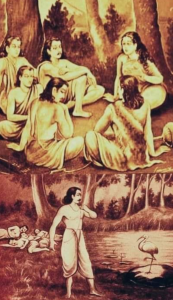
But what Mirza Abbas focused on most was the electoral weight of these parties. No matter how many people were at the Suhrawardy Udyan rally, how many of the country’s 110 million voters do they represent? Even collectively, do they have 1% of the vote?
Alongside them is Jamaat-e-Islami, whose electoral strength, according to Bangladesh’s electoral history, has never exceeded 5%.
The Math of Political Exclusion
Meanwhile, because of Yunus’s wavering strategy, the Awami League now finds itself out of electoral politics. This is a party that has never received less than 31% of the vote. BNP and Awami League elections are always closely contested. If BNP boycotts or is excluded, we get another 2014 or 2024. If Awami League is out, we get another February 15, 1996.
Here lies the real dilemma for democracy and elections in this country. Any leader can be held accountable for crimes. That’s natural. But when an entire party is kept out of elections, one must ask—what’s being hidden under the veil? Even if elections happen, democracy may not follow. We might just get another election like 15, february-1996, 2014, 2025—voters won’t show up.

Can Awami League Voters Be Redirected?
I’ve seen many analysts speculate: will Awami League voters now vote for BNP? Jamaat? A new party? These are wise people, but my own opinion differs slightly.
Recently, an Indian journalist—like a younger brother to me—asked, “Brother, has Awami League become like Congress in India?” I don’t analyze the Indian congress politics in black and white. However, that’s another subject. There is a different between Indian Congress and Awami league.
I told him: don’t judge Awami League by Indian or Western standards. Judge them by your own religion. Because for many of their followers, Awami League is not just a party—it’s a religion. They have a cult figure: Sheikh Mujibur Rahman. And in Bangladesh, Awami League is self-replicating—born and raised within its own families. At least 30% of the population belong to this group. They are deeply committed.
Awami League’s problem is that when it comes to power, outsiders flock to it. But that 30% core remains like an underground stream—unshaken in their faith.
I had shared this same opinion with respected journalist Ataus Samad during a casual visit to his new home, just days before his death. During our conversation, he asked, “Swadesh, with the way Awami League is trying to destroy BNP, will BNP survive?”
I replied, “Samad bhai, my view is slightly different. After 1975, Awami League suffered many persecutions. Still, they returned to power after 21 years. BNP members are also sons of this land—they didn’t come from Punjab or Sindh. They are often cousins or relatives of Awami Leaguers. If one brother can survive 21 years of struggle, why can’t the other?”
Despite being my senior and mentor, our relationship was informal—we could talk for hours. That day too, he initially listed many of BNP’s flaws, drawn from his vast experience. But in the end, with his signature sweet smile, he said, “Actually, I was just testing you. I believe BNP will survive.”

Then he opened up, sharing from his journalistic and political experience, as he often did. He used to say, “In ’71, I drove a car carrying Maya, Rumi and others with weapons from one place to another. I washed the smell of gunpowder off my hands with petrol.”
Few may know this today: in 1971, had one of his well-wishers not warned him ten minutes before in 12 December, 1971 that anti-liberation student groups were coming to abduct him, he wouldn’t have escaped through the canal behind his house—and would have been listed among the martyred intellectuals.
His firm belief was this: until both major parties—BNP and Awami League—fully embrace the true spirit of the Liberation War, and until people with that belief are placed at every level of the state, Bangladesh will never be stable, nor will democracy take root.
Since independence, for 55 years, the country has floundered—dividing further with each step. The reason lies here: from the beginning, we’ve never truly stood on the principles on which this nation was born.
No More Fire or Blood—Only Peace
But after 55 years—no more rivers of blood, no more Khandavadahan. The dream is a peaceful Bangladesh. And that requires, first and foremost, a stable government.
In a country where women live in fear of rape, where people are haunted by mob violence and looting—can stability come through waiting, or must it be fought for with courage? That is the question facing the people now.
Because no matter how powerful a person may be, we are all children of our time—and time is always the real protagonist of this world.
Writer: Swadesh Roy Recipient of the highest national civilian award in Bangladesh, Editor of Sarakhon and The Present World.



